Why am I crying over dead palm trees?
Grieving what we've lost this year, including the plants that didn't survive the freeze.
I have some over-attachment issues with my plants.
They aren’t really “my” plants, are they? I might have planted them, but they belong to themselves and to the universe.
Take this jasmine I planted along the fence a few years ago. I have fond memories of smelling those sweet white flowers as a young girl living in Florida, where I spent my early youth.
We had a palm tree in the backyard, and its trunk was covered in this massive vine that would bloom with force each spring. Hunting for Easter eggs didn’t smell like chocolate or grass or dyed eggs. It smelled like that tree.
Fast forward thirty years, and I’m a homeowner and a plant lover and a mom with kids who don’t hunt for Easter eggs any more.
Those early experiences with nature mean that I’m now an adult who pays attention to what grows around me, learning the names of the plants on the greenbelt and using plants as a way to tap into my own mindfulness about the slow changes that are happening around me and within me at all times.
I notice the very first hint of green in the tree canopy after winter and the first dead leaves that float to the ground each fall. I watch agaves send up their stalks and magnolias drop their velvet leaves and the prickly pears put on their fruit and the loquats. Don’t even get me started on the loquats.
Although native species are what I probably should have sought out for my own yard, I have been planting trees and shrubs that yield things I can use in the kitchen. Peaches, Meyer lemon, lemongrass, rosemary, pomegranate, Mexican plum. (And yes, my very own loquat.)
When my grandma died, I planted a row of daffodils, which remind me of the American Cancer Society flower sales she used to help with when I was little.
That memory of the jasmine tree from my youth has been unshakable, so when I saw them on sale at Lowe’s a few years ago, I picked up a couple of varieties and planted them along two parts of my own backyard fence, dreaming that they would eventually take over the chain link and create a lush green foliage of privacy that, when flowering each spring, could delight my nose and my brain with that olfactory hit of serotonin.
A year ago, when the pandemic was starting, my mom was visiting us from Missouri. She ended up staying for most of the month while we waited for whatever was going to happen next. I remember asking her to take a selfie with me in front of the fully bloomed jasmine. I thought the photo would mark this strange time of being together, which it did, but it also stands as a memory of what was Before the Storm.
Many of us are marking the day the Before Times ended this week. A change so swift, so vast, so heart-wrenching that I don’t know if I can accurately write about it right now.
Amid all that mourning for what was, for the losses, the deaths, the sadness of this past year, I’m preternatural focused on the plants.
Maybe it’s a way to avoid thinking about the 600,000 people who have died in the U.S. because of the coronavirus. Maybe it’s a way to focus on what’s in front of me — dead palm trees and cactus, shriveled citrus trees, barren ligustrum — so I don’t venture into the human suffering that might not be so apparent. People who still don’t have water. Racists being racists. Depression, loneliness and untended grief.
But all I can think about are the plants.
When the shutdown started, I hit the streets for daily walks, both in my neighborhood and at Frank’s. I discovered funky homes and sweet little libraries, pockets of urban forest that were filled with different flowers and trees and insects. These walks became one of my most important tools to keeping my sanity, especially during the first few months when we almost totally at home.
“At least we have nature.”
Watching all the plants go into hibernation, which happens much later in the year in Texas than in most parts of the country, I was at peace with the leaf-less trees and dormant rose bushes and brownish-green yards.
And then the winter storm hit, and it dropped temperatures into the single digits for longer than the humans and plants in this area are prepared for.
It’s been three weeks since that trauma-within-a-trauma. The sun has returned, but the plants. The plants, my friends, are struggling.
I know only time will tell what has survived, but when I go on my walks now, all I can see are plants that look like many of us feel. Wrinkled and worse for the wear. Barely hanging on.
I was talking with another nature lover yesterday, and she reminded me that all the native Texas species seem to have survived, exactly as nature intended. The non-native species, like my beloved jasmine? Their time might be up.
It’s easy for me to forget that both the coronavirus and this winter storm are acts of nature. I’m an act of nature, too.
As we go through what feels like an unexpected round of fall in spring, I’m facing another round of grief work. Of letting things I love die. Of releasing my expectations of what spring (or adulthood or parenthood) should be.
It’s painful to watch anyone go through loss or a scary situation because it reminds us of our own losses, our own fears.
The plants are doing what plants do. Humanity is doing what humanity does. Addie is doing what Addie does.
And right now, that’s crying over a spring that doesn’t feel like spring should.
I can’t rush the spring rains that will help the plants recover. I can’t rush the vaccine or the masks or the therapy or the stimulus checks that will help the humans recover.
Nature doesn’t respond to rushing or holding on, so I need to let these plants go.
Last spring, the quarantine was new and the agaves were strong and I was facing fresh challenges around detachment and expectations.
This spring, the agaves are wilted. Farmers have had to pull out entire fields of soggy vegetables. The quarantine is burden we’ve become accustomed to carrying, and I am learning — yet again — the importance of letting go.

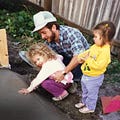


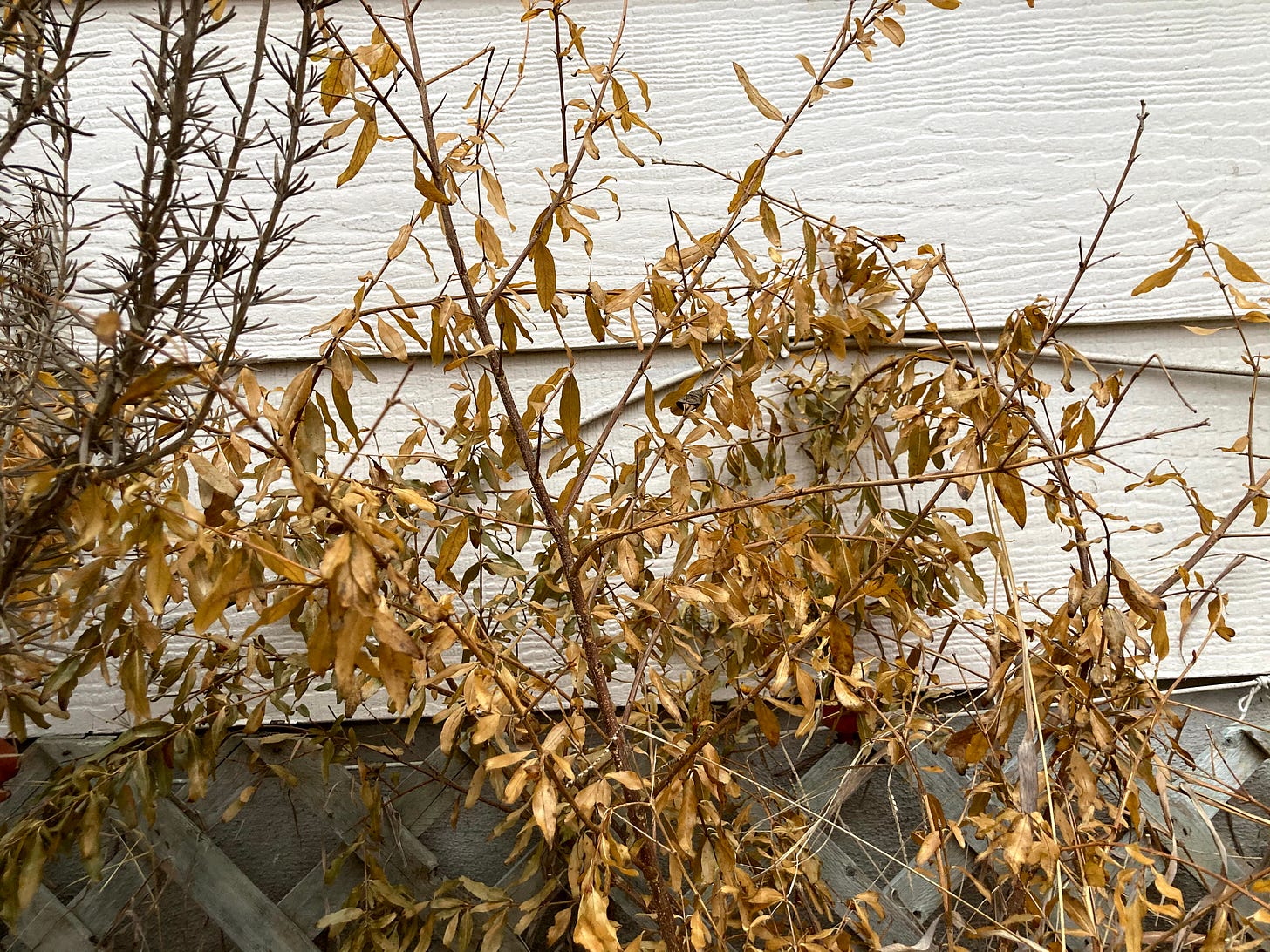
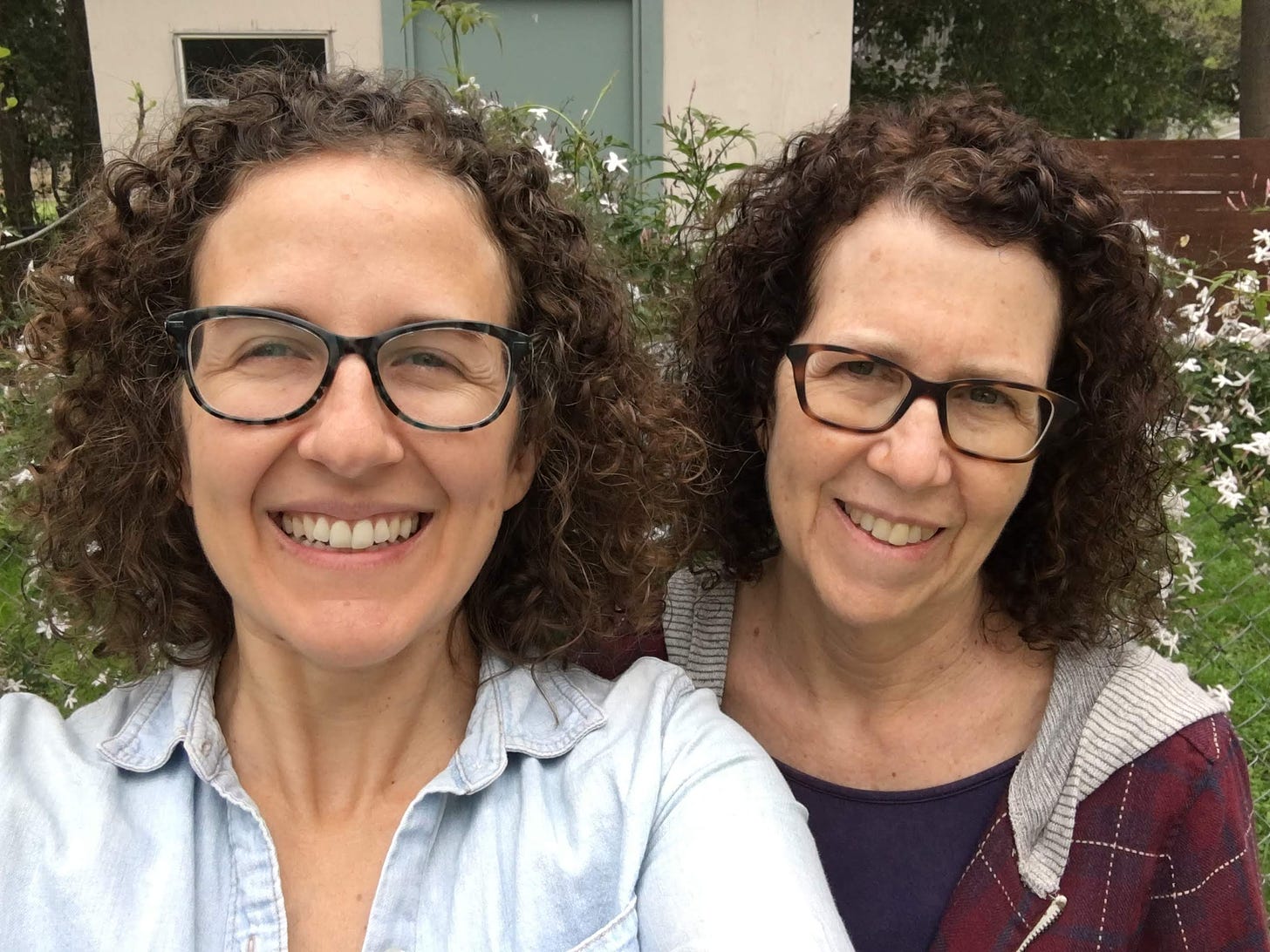
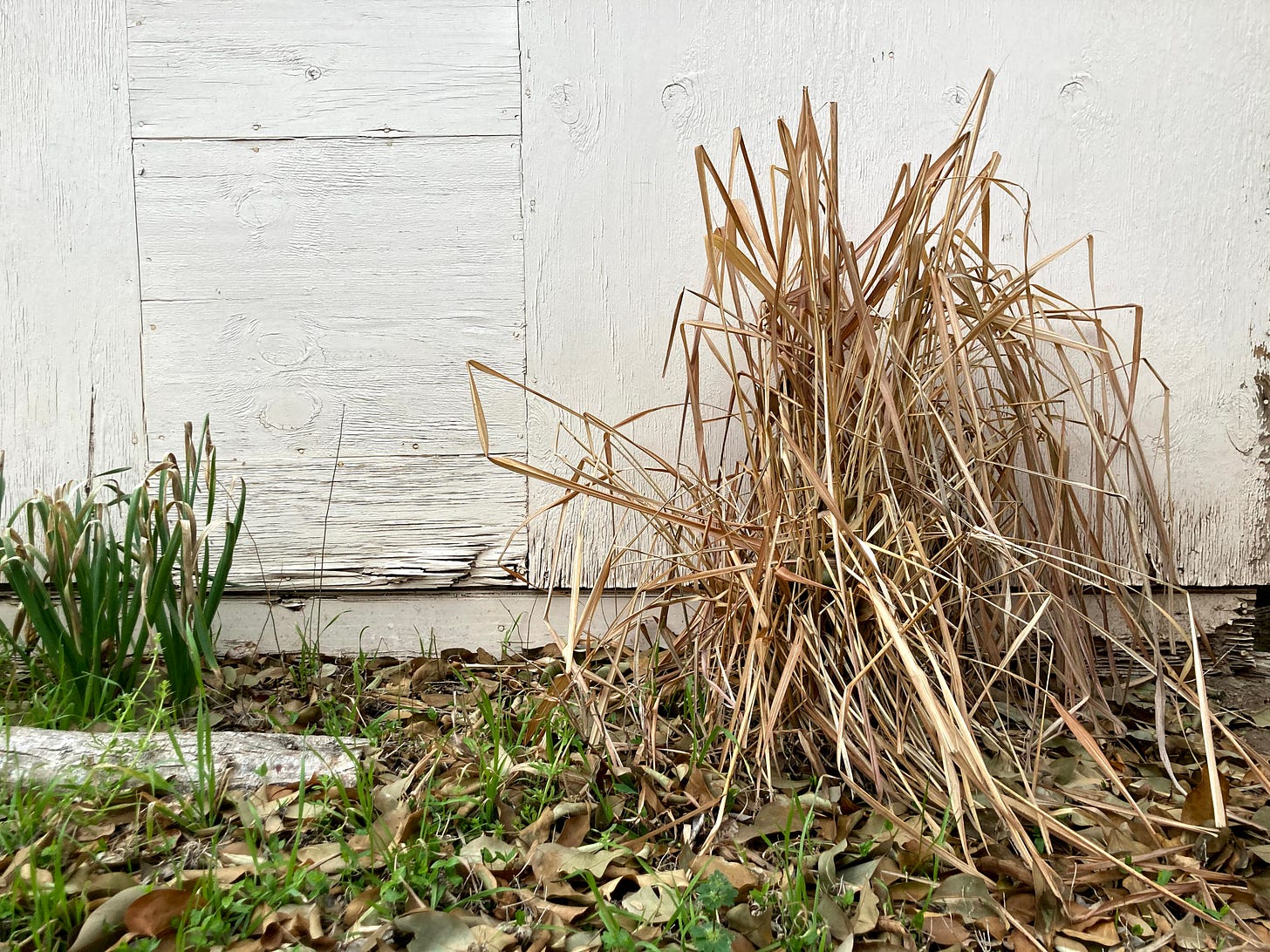
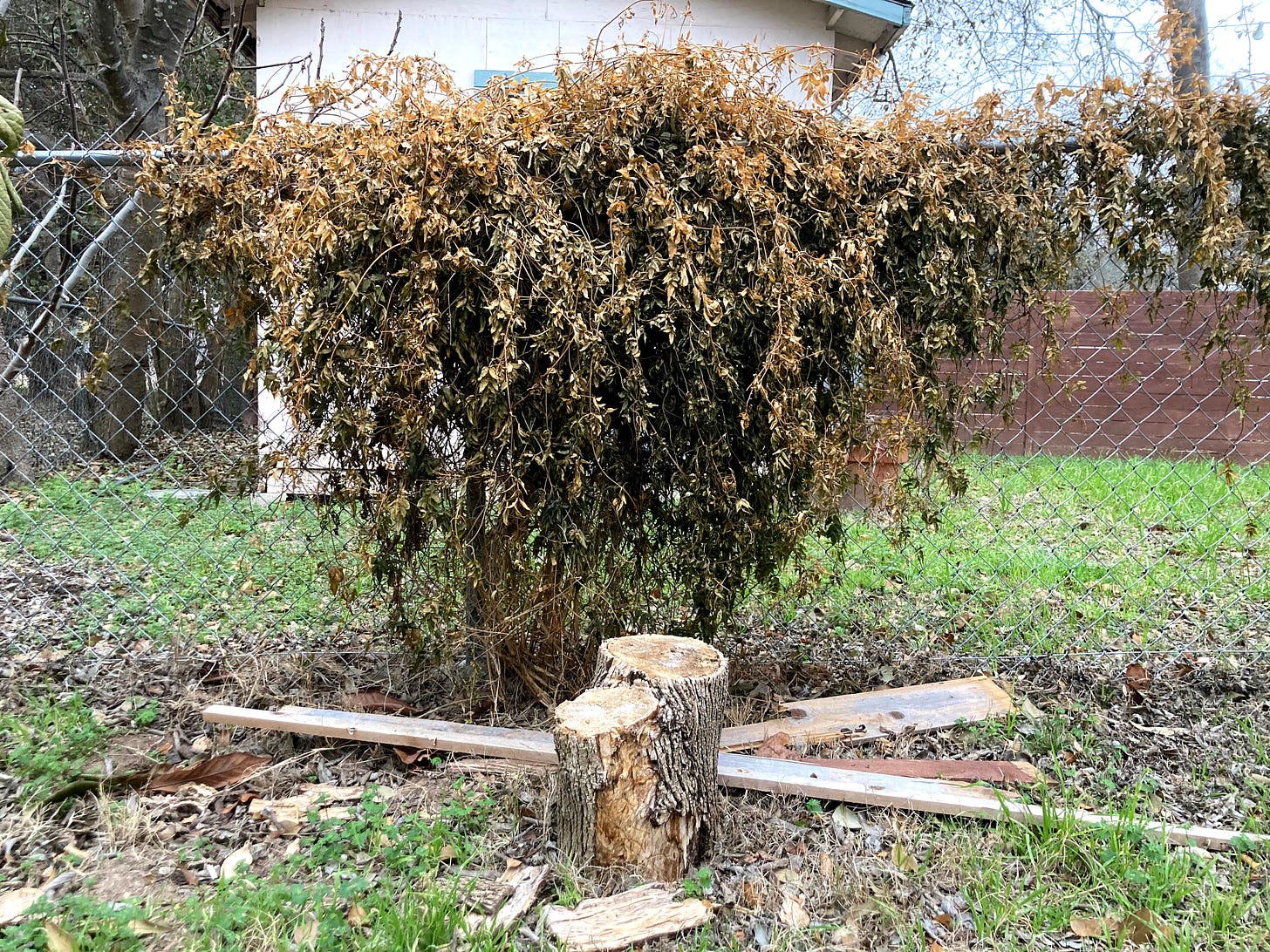
Beautifully written. One of my favorite quotes is- "We may think we are nurturing our garden, but of course it is our garden that is nurturing us"~Jenny Uglow Being able to let go of my garden and give it back to it's original source was such a struggle. It's comforting to know so many feel the same way. <3